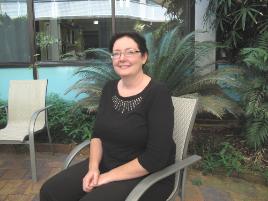'Never shirk' when kids harm animals
Published on 08 October, 2010
Early intervention has compelling benefits in cases where children are discovered harming animals, according to researcher preparing to address a public forum in Rockhampton later this month...
CQUniversity's Dr Tania Signal says a child hurting an animal is a 'red flag' or risk factor for wider problems including family violence, domestic violence or child abuse.
---------------------------------------------------
Title of presentation: ‘Deliberate harm of animals: what does it mean, what can we do about it and where to from here?' The Institute for Health and Social Science Research (IHSSR) invites you to join us for our fifth Research Unplugged session for 2010 with Dr Tania Signal, Acting Head of Program, Psychology, School of Health & Human Services, CQUniversity. This free, informal, discussion-based presentation from 6pm-7pm on Thursday October 21 will be held in Parkers Function Room at the Criterion Hotel in Quay Street, Rockhampton. A selection of finger foods will be provided. To help with numbers for seating and catering, please RSVP via j.douglas@cqu.edu.au or on 4930 9371.
-----------------------------------------------------
While some incidences can be explained as an exploration phase of development, the response to the issue can be crucial in preventing negative outcomes in later life.
"There's strong links between deliberate harm of animals and risk for future violence and future impairment. We need to act if children witness animal abuse or if they are engaging in animal abuse," Dr Signal said.
"For example, mum and dad might be fighting and using an animal as a threat to get compliance. Other times the child might be suffering abuse and acting out on animals because they are easy to control.
"If a toddler harms a kitten it does not mean they will grow up to become a serial killer but it does indicate something may be not quite right."
Dr Signal said she would explain the prevalence of the problem in this region and potential solutions for parents and others in a position to deal with it.
She recommends that humane education becomes part of school curriculums at every level because "embedding empathy towards animals also helps with empathy to people".
The researcher also recommends animal-assisted therapy based on positive outcomes in a Bundaberg-region project.
"Kids engaging in abuse were taught how to engage with animals in safe way through positive reinforcement techniques. Parents were impressed with the outcomes," she said.
Dr Tania signal will also recommend an American-sourced therapeutic package called 'ani-care' which uses cognitive behavioural therapy to work with young clients engaging in animal harm.
She said the 'ani-care' package had been shown to be effective, regardless of the root causes of the problem.


